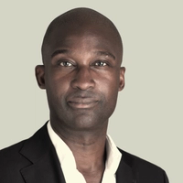THE SCOOP  Sean Gallup/Getty Images Sean Gallup/Getty ImagesADDIS ABABA/LAGOS — Staffers across the African Development Bank are pushing back at attempts by its top management to quietly resolve a major diplomatic spat with the government of Ethiopia after two members of its country management team were physically attacked in Addis Ababa. The Oct. 31 assaults took place during an AfDB visit by the country manager to Ethiopia’s finance ministry. Two people familiar with the matter said there had been an email phishing incident by fraudsters which had led to the disappearance of over $5 million intended to be deposited into the bank. But it is still unclear if the attacks on the AfDB officials by the ministry’s security guards were directly related to the disappearance of the funds. The bank said it is awaiting the outcome of Ethiopia’s investigation “which we expect to be prompt and transparent.” The AfDB’s senior leadership in Addis Ababa, led by Ethiopia country manager Abdul Kamara, were initially detained but then later violently assaulted leaving Kamara with visible facial injuries in a photo seen by Semafor Africa that has been shared in influential Ethiopian social media circles. An earlier AfDB statement said the two staff members were “unlawfully arrested, physically assaulted, and detained for many hours by elements of the security forces without any official explanation.” The AfDB’s president Akinwumi Adesina has tried to reassure staff that the matter is being taken seriously and reached out to Ethiopia’s Prime Minister Abiy Ahmed over the incident. Adesina has also filed a complaint. In an internal memo to staff, seen by Semafor Africa, Adesina said: “The safety, security, rights, privileges and diplomatic immunities of our staff in all countries where we operate are of paramount importance.” He also said that none of the bank’s operations in Ethiopia had been affected by the incident. But there is some disquiet among long-time staffers who want the bank to take much more bold action with harsh sanctions on Ethiopia to ensure the bank’s staff are not at risk in even more volatile countries. “At the least we should have suspended operations and withdrawn all personnel. To send a strong signal,” said one staffer in a text message seen by Semafor Africa. Another text suggested the bank would be “endorsing state-sponsored thuggery” if the AfDB did not take strong action. In a statement, the bank described such characterization of its response as “incorrect” pointing out the “very serious diplomatic matter” had been addressed at the highest levels. KNOW MORE The AfDB is Africa’s leading development finance institution, and its staffers are typically accorded with diplomatic immunity like other DFIs. One of the ways it is seen as different from the larger World Bank and the International Monetary Fund, is that it is perceived to have specialist expertise and a closer understanding of Africa’s economic realities. The bank, headquartered in Côte d’Ivoire’s capital Abidjan, has been an important partner for Ethiopia on a string of development projects across energy, transport, water supply and sanitation, and agriculture. The bank sent a delegation of senior leadership to Addis Ababa this week to address the incident. | 









